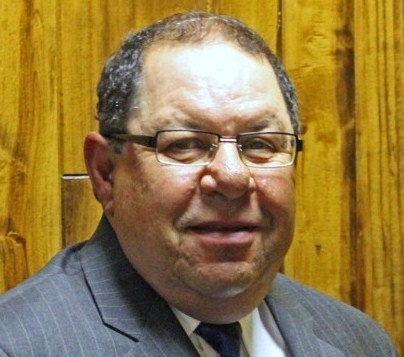We present, below, our Q-and-A with Mike Miller, governmental affairs representative for New Mexico for the Permian Basin Petroleum Association. PBOG magazine spoke with Mike this month on the early activity in the statehouse.
PBOG: Mike, what are the issues now and what do you see happening this year?
Miller: There’s one big issue, and the big issue is money. As of right now, there’s about a $69 million deficit in fiscal year 2017, which is the budget we’re in right now. We have to have a balanced budget. They’re expecting some shortfalls for 18. That is going to be the overwhelming theme, if you will, of this legislature: the fiscal condition of the state. Depending on whom you talk to, it’s pretty well known that oil and gas contributes about 33-35% of the revenue to the general fund of the state of New Mexico.
Obviously, where the industry’s been as of late is part of the issue of the budget. That’s the overall underlying issue of the 2017 legislature. The governor has offered up some budget balancing proposals that call for some cuts and some bigger contributions by state employees to their retirement program and so on and so forth.
PBOG: How does that part help things? The contributions, that is.
Miller: Well, for example, I’m on the city council here in Portales. Depending on what sort of a pension plan they’re on, the employee contributes so much, and the city contributes so much, so it’s the same way with the state. The state contributes so much on behalf of the employee as part of the benefit, if you will. If they change that benefit, and let’s say that the state was contributing 10 percent and now the state is going to back off and contribute 8 percent and ask the employee to contribute 2 more percent. I don’t know that that’s what the number is, but that [in principle] is one of the proposals…
PBOG: So the employees carry a bigger share.
Miller: Right. That’s how that would work. Again, that’s part of the proposal. What I was about to tell you before you asked that question was, the legislature has a budget proposal, and of course the executive [branch, i.e., the governor’s office] has a budget proposal. The House is supposed to have the budget out to the Senate by mid session, so that’s going to consume an early part of the session. Obviously, it’s a 60-day session in New Mexico. That means anything goes. Any piece of legislation can be introduced and be germane to the session.
There’s well over 100 pre-filed pieces of legislation and, to date, there hasn’t been much that would impact our [oil and gas] industry directly. There’s a couple of tax bills out there that we’ll need to look at that are always there. I expect that there will be some legislation, both adversarial and advantageous to the industry, that’s going to be introduced. We have a new leader in the Senate, a gentleman by the name of Peter Wirth. He’s an attorney out of Santa Fe. He is the Senate Majority Floor Leader. In New Mexico—unlike Texas—the Senate Majority Floor Leader is the one who determines the agenda for the Senate and controls the pace of the Senate. In the past, for the longest time, it’s been Michael Sanchez, and Michael was defeated in this last election, so we have new leadership here. The Democrats took control back of the House of Representatives.
PBOG: And the Senate is also Democratic controlled?
Miller: Yes. In fact, the Senate Republicans lost two seats in this last election.
PBOG: If the House gets their version of the budget to the Senate by mid session, then what happens at the Senate then?
Miller: Then the Senate does their part of it. The Senate makes changes to it. They do their add-ons. They’re left some room to do some things and then, obviously, whatever changes they make, it goes back to the House for concurrence.
PBOG: The reconciled budget that both Houses have agreed on, then it goes to a vote, right?
Miller: Yes. In other words, the House passes a budget. The Senate gets the budget to make their changes, passes it, so the Senate’s passed it, they send it back to the House, the House concurs with their changes, and then the Senate accepts the House concurrence report and then it goes to the governor.
PBOG: That all should happen this year, in the 50 days?
Miller: Yes. We convene on January 17th at noon, and we adjourn March 18th at noon.
PBOG: There’s not a lot of oil and gas related legislation under consideration, then, apparently. It’s mainly just budgetary.
Miller: It’s very much budgetary because of the state of the budget. I anticipate there will be oil and gas legislation, like I said. I’m sure there will be some ‘bad’ bills [bills that are unfriendly to oil and gas]. I’m sure there will be some ‘good’ bills. But right now, the budget is the number one issue. It’s the gorilla in the room, if you will.










